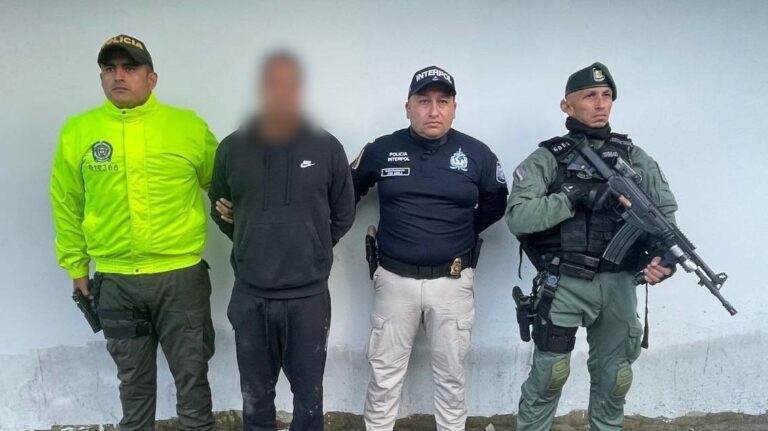Venezuela Denies US Allegations of Supporting Criminal Networks Amid Heightened Diplomatic Tensions
Venezuela Condemns US Accusations as Politically Motivated Smear Campaign
Authorities in Venezuela have firmly rejected recent claims from the United States accusing the Venezuelan government of harboring and aiding criminal groups. Caracas describes these allegations as baseless and politically charged attempts to damage its international standing and hinder diplomatic efforts. Venezuelan officials assert that the US narrative is driven by strategic interests aimed at exerting pressure amid worsening bilateral relations.
Key points from Venezuela’s rebuttal include:
- Absence of credible evidence linking Venezuela to organized crime within the region.
- Ongoing dedication to fighting illicit activities through national law enforcement and collaboration with international partners.
- Strong denunciation of what it calls a defamatory campaign designed to justify additional sanctions and diplomatic exclusion.
| Aspect | Venezuelan Perspective | US Assertion |
|---|---|---|
| Evidence | No verified proof presented | Relies on unverified intelligence reports |
| Motivation | Politically biased agenda | Justification for anti-narcotics measures |
| Impact on Relations | Exacerbates diplomatic tensions | Supports enforcement of sanctions policies |
Examining the US Claims: Lack of Substantiation and Ignored Political Complexities
The US Department of Justice has accused Venezuelan officials of masterminding extensive criminal operations involving drug trafficking and terrorism financing. However, these charges lack concrete evidence and overlook the complex geopolitical environment surrounding Venezuela. Independent analysts highlight the absence of direct proof or credible testimonies implicating high-ranking Venezuelan leaders. Furthermore, the accusations fail to address the impact of longstanding US sanctions and diplomatic pressures, which many experts argue have intensified Venezuela’s internal difficulties rather than resolving them.
Experts also point to a broader political backdrop influencing the US allegations, noting Venezuela’s substantial oil reserves and its strategic alliances with countries often at odds with Washington. Critical overlooked factors include:
- Historical tensions: Decades of US-Venezuela antagonism and sanctions have shaped a fraught relationship.
- International partnerships: Venezuela’s ties with nations like Russia and China complicate the US narrative.
- Humanitarian impact: Economic sanctions may exacerbate humanitarian crises rather than address root causes.
| Dimension | US Viewpoint | Critical Insights |
|---|---|---|
| Proof | Claims of direct criminal involvement | Insufficient concrete evidence; reliance on circumstantial data |
| Geopolitical Context | Focuses narrowly on criminal allegations | Neglects sanctions’ effects and complex political realities |
| International Response | Asserts widespread global support | Many nations advocate for dialogue and peaceful resolution |
Implications for Bilateral Relations and Regional Stability
The US accusations have further strained the already fragile relationship between Washington and Caracas. Venezuela has condemned the charges as politically motivated defamation aimed at undermining its government’s legitimacy. This conflict has stalled diplomatic dialogue and fueled nationalist sentiments within Venezuela, complicating future cooperation. The US’s rigid stance reflects a broader strategy to isolate Venezuela internationally, intensifying tensions in an already volatile region.
Beyond the bilateral sphere, these allegations risk destabilizing the broader Latin American region. Neighboring countries express concern that escalating hostilities could lead to increased migration flows and cross-border criminal activities. Analysts identify several significant regional consequences:
- Heightened diplomatic divisions: Latin American countries are split, with some backing US policies and others supporting Venezuela.
- Economic disturbances: Sanctions and trade restrictions disrupt markets dependent on Venezuelan oil and commodities.
- Security challenges: Increased militarization and border controls may be implemented to prevent spillover violence.
| Impact Area | Potential Outcome |
|---|---|
| Diplomatic Engagement | Prolonged deadlock and reduced collaboration |
| Migration Patterns | Rise in refugee movements to neighboring states |
| Trade and Energy | Disruptions in supply chains and energy markets |
Strategies for De-escalation: Promoting Dialogue and International Facilitation
To mitigate rising tensions, it is crucial to sustain open and constructive diplomatic channels. Both Venezuela and the United States could benefit from ongoing dialogue mediated by impartial third parties, fostering mutual trust and clarifying misunderstandings surrounding the allegations. International organizations such as the United Nations and the Organization of American States are well-positioned to serve as neutral facilitators, encouraging transparency and respecting sovereignty while addressing security concerns.
- Building trust: Establishing communication mechanisms and regular consultations to prevent misinterpretations.
- Neutral mediation: Involving unbiased international entities to oversee negotiation processes.
- Focus on humanitarian aid: Prioritizing crisis relief as a foundation for political dialogue.
- Incremental cooperation: Agreeing on small, verifiable steps before tackling larger disputes.
| Actor | Function | Advantage |
|---|---|---|
| United Nations | Impartial peacekeeper and mediator | Ensures neutrality and global legitimacy |
| Organization of American States (OAS) | Regional dialogue facilitator | Offers regional expertise and proximity |
| Civil Society Organizations | Promoters of human rights and transparency | Enhances accountability and public confidence |
Ultimately, a shared commitment to dialogue and mediation can reduce hostility and lay the groundwork for enduring peace. Recognizing the complexity of the issues involved, both parties should prioritize diplomatic frameworks that avoid public confrontations and emphasize collaborative problem-solving to ensure regional security and stability.
Future Outlook: Managing the Intricate Venezuela-US Relationship
By categorically denying the US accusations of state-sponsored criminal conduct as baseless and defamatory, Venezuela has underscored the deep-seated tensions defining its relationship with Washington. As this dispute unfolds, the international community remains vigilant regarding the broader geopolitical ramifications and the persistent challenges in governance and security across Latin America. The trajectory of these developments will play a crucial role in shaping future diplomatic interactions and regional security dialogues.




